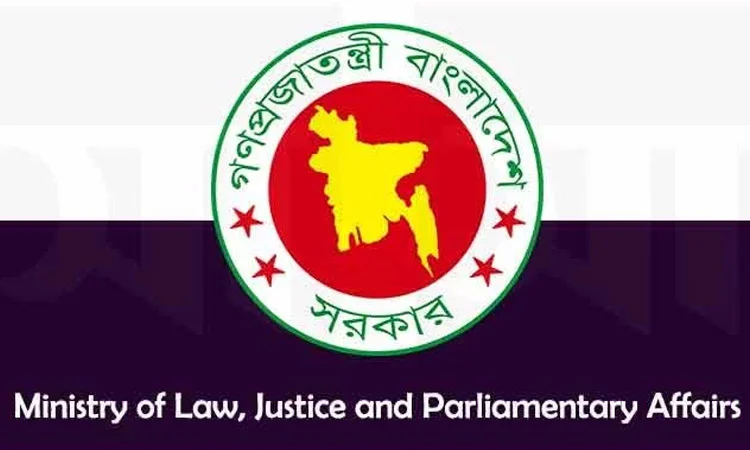News Flash
News Flash

By Didarul Alam
DHAKA, August, 2025 (BSS) - Bangladesh witnessed effective judiciary and legal reforms in one year of interim government sworn in on August 8 last year after Sheikh Hasina stepped down from premiership and fled to India amid mass uprising, ending her almost 16 years autocratic rule.
Nobel Laureate economist Dr Muhammad Yunus led interim government took oath after Sheikh Hasina's downfall on August 5 and initiated a wide range of reforms to bring back stability, order and accountability in different sectors to be ruined by prolonged misrule of Awami League.
As part of reform initiatives, the current government formed 10 commissions to strengthen and modernise different ministries and public institutions as the commissions submitted their reports for reforms resulting in accomplishing major changes in judiciary and legal system in one year.
On October 3, 2024, the government issued a gazette notification forming a Judicial Reform Commission in the backdrop of the political shift during the July-August uprising that saw at least 1400 deaths and around 20000 injuries in attacks on uprisers by law enforcers and AL cadres.
The Judicial Reform Commission submitted its recommendations on February 15, 2025, aiming to establish an independent, neutral, and effective judiciary system in the country.
The commission was headed by former Supreme Court Appellate Division Justice Shah Abu Nayeem Mominur Rahman.
The Ministry of Law, Justice and Parliamentary Affairs has implemented several major reform initiatives over the past year. The highlighted reforms are:
Amendment to the International Crimes (Tribunals) Act, 1973: Two separate ordinances were issued on February 10 and May 10, 2025, that modernised and internationalised the Act.
Reconstitution of the International Crimes Tribunal: The prosecution team was reorganised on September 5, 2024, followed by the investigation agency on September 18, 2024. On May 8, 2025, the government formed ICT-2 while designating the previously restructured tribunal as ICT-1.
Modernisation of the ICT Building: In collaboration with the Ministry of Housing and Public Works, the old High Court building housing the tribunal was renovated.
Supreme Court Judges Appointment Ordinance, 2025: The ordinance was enacted on January 21, 2025. For the first time in Bangladesh's history, a public circular was issued on May 28, 2025, inviting applications for judge appointments.
Amendments to the Civil Procedure Code: Litigants no longer need to give oral testimony in person day after day and will be able to submit their testimony in writing by affidavits.
Amendments to the Women and Children Repression Prevention Act: Provisions include creation of a separate Child Rape Tribunal, mandatory investigations within 30 days, trials within 10 days, and categorisation of boy-child molestation as a separate offence.
Amendments to the Power of Attorney Rules, 2015: Bangladesh-origin individuals without a passport but with NVR stickers or national ID/birth certificate can now execute a power of attorney abroad.
Marriage Registration Rules Amended: Gender-discriminatory provisions have been removed, and online registration of marriage and divorce has been introduced.
Withdrawal of Politically Motivated Cases: Committees have recommended withdrawal of 11,759 cases filed between 2009 and August 5, 2024.
Speech Offense Cases Under Cyber Law Withdrawn: A total of 413 state-initiated speech-related cases have been dropped.
Anti-Corruption Measures: Asset declarations from judges and officials are being scrutinised, and administrative actions have begun against some.
Information Centres on Court Premises: Eight divisional cities now have information centres to assist litigants and reduce reliance on brokers.
Online Apostille Services: Document attestation is now processed digitally, replacing the manual method prone to forgery and delays.
Modernisation of Existing Laws: Several civil and criminal laws are under review for modernisation.
Judicial Digitisation: E-court and model sub-registry offices are under development.
Court Infrastructure Development: Construction and expansion works were launched in 23 districts.
Public Service Innovation: Pilot e-courts are being tested with virtual trial features to be rolled out nationwide.
Model Sub-Registry Offices: Initiatives launched with development partners for online registration.
Asset Declaration by Judicial Officers: Judges and officials have submitted declarations; verification is ongoing.
Support for Anti-Enforced Disappearance Treaty & Commission: Bangladesh has ratified the International Convention for the Protection of All Persons from Enforced Disappearance and established a Commission of Inquiry.
Legal Aid Ordinance Revised: Revised ordinance was issued on July 1, 2025, for expanded legal assistance.
Second Amendment to Public Service Act: Ordinance was issued on July 23, 2025.
Cyber Security Ordinance, 2025: Enacted on May 21, replacing the Cyber Security Act, 2023, to ensure digital space safety and address cybercrimes.
According to Law Ministry Spokesperson Dr Rezaul Karim, the ministry continues several key reform activities, including finalizing the draft of the second amendment to the Criminal Procedure Code and drafting the Enforced Disappearance Prevention Ordinance, 2025.
Other initiatives which are currently underway, are -revision of land survey tribunal laws, drafting law to establish a permanent attorney service, bringing lower court judges' appointments, transfers, and disciplinary actions fully under Supreme Court authority, centralizing recruitment exams for subordinate court employees via Judicial Service Commission, establishing two paperless family courts in Dhaka and Chattogram, expanding legal aid offices and online marriage registration, and implementing clean and safe sanitation facilities in all court premises.
Between August 5 and December 31, 2024, the Ministry issued 17 ordinances and 139 SROs. This was followed by 30 ordinances and 266 SROs up to June 17, 2025.